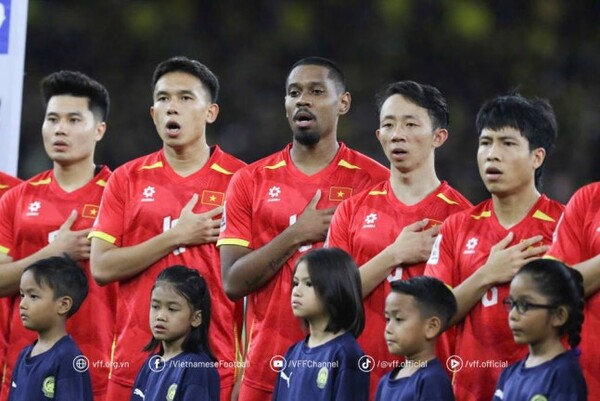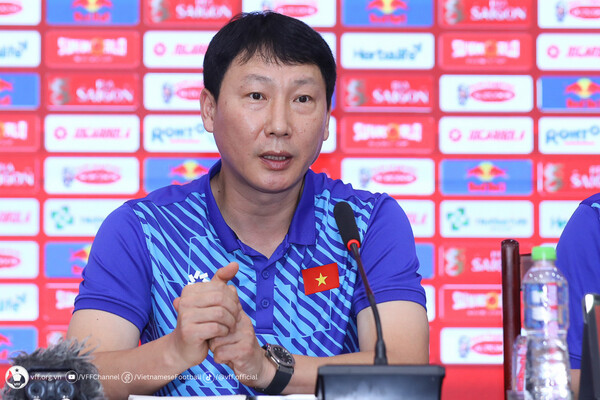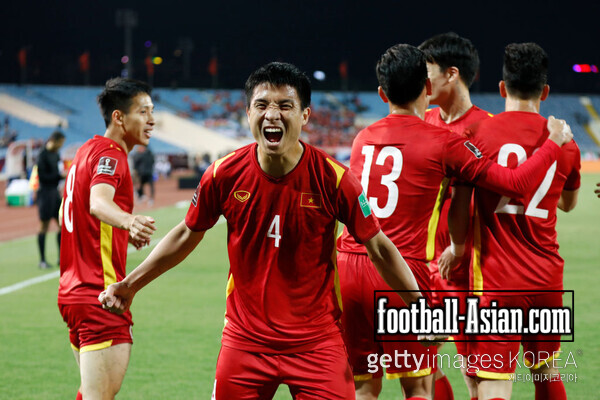Vietnam’s New Passport to Power: Citizenship Reform Opens Door to Global Football Talent

Vietnam eye footballing revolution with major naturalisation drive under coach Kim Sang-sik
Vietnam are preparing to launch one of the most ambitious naturalisation programmes in Asian football, with newly amended nationality laws set to allow the men's national team—now under the guidance of head coach Kim Sang-sik—to recruit a wave of dual nationals and foreign-born talents.
The move could see the Southeast Asian nation dramatically bolster its player pool, joining regional rivals such as Indonesia and Malaysia in a race to reshape international football through targeted naturalisation.
According to Chinese outlet Sina Sports, the Vietnamese government passed a revised nationality law on 24 June, introducing looser criteria for dual nationals and individuals with Vietnamese heritage. The new law, which comes into effect on 1 July, paves the way for foreign nationals with familial or professional ties to Vietnam to acquire citizenship without having to renounce their original nationality—an approach that stands in contrast to more restrictive frameworks in neighbouring countries.

Asia's naturalisation race intensifies
Vietnam’s new policy comes as part of a broader trend in Asia, where nations are increasingly turning to heritage players to close the gap on powerhouses such as South Korea, Japan, and Australia.
Indonesia have already fielded 20 naturalised players en route to the fourth round of AFC qualifying for the 2026 FIFA World Cup—leapfrogging both China and Bahrain in the process. Malaysia, meanwhile, have reportedly naturalised 37 Argentine players as part of a sweeping multicultural footballing initiative. India, too, is considering a significant naturalisation push, with 33 players of Indian origin abroad—some based in England’s Championship and League One—on their radar, according to NetEase.
Now, Vietnam are set to enter the fray with what local reports are calling a “mega-plan”.
Vietnam's new law: A door opens
The amended legislation permits those with Vietnamese parents, grandparents, or spouses to retain their foreign nationality when applying for Vietnamese citizenship. Additionally, the usual requirements regarding minimum years of residence, language proficiency, or financial self-sufficiency have been waived for individuals with direct heritage links or those considered to hold “exceptional talent” or “contributions” to Vietnamese society.
This legal framework effectively unlocks national team eligibility for a wide range of foreign-based players with Vietnamese ancestry—including dozens of active professionals in Europe, North America, and Australia.
One standout name reportedly on the Vietnam Football Federation (VFF)’s wishlist is Kenneth Schmidt, a 22-year-old defender currently with Fortuna Düsseldorf in Germany’s 2. Bundesliga. Born to a German father and a Vietnamese mother, Schmidt is valued at €1.2 million and has represented Germany at youth level. With his chances of breaking into Die Mannschaft slim, reports suggest the VFF are actively pursuing his commitment to the Vietnamese national team.

Targeting the Vietnamese diaspora
Vietnamese outlet The Thao 247 recently revealed that the VFF is managing a list of over 100 overseas players of Vietnamese descent, ranging from teenagers to fully professional athletes. These names are being tracked, assessed, and in some cases approached to consider switching allegiance.
VFF’s technical department is said to be regularly updating this database, while head coach Kim Sang-sik is reportedly playing a hands-on role in identifying potential recruits. The former Jeonbuk Hyundai manager, who took the reins earlier this year, is expected to build a squad that blends domestic talent with high-level overseas quality.
Several of these players are currently plying their trade in Vietnam's top division, the V.League 1, and may now become eligible for national team selection if they meet the new dual-nationality guidelines.
Implications for regional football
With their rivals making aggressive moves, Vietnam's decision could prove pivotal in keeping pace at international level. The potential to rapidly enhance squad depth and tactical flexibility—without waiting for long-term development cycles—offers an appealing route to increased competitiveness.
If successfully implemented, this programme could elevate Vietnam’s ambitions not only in regional tournaments such as the AFF Championship and the EAFF E-1 Championship, but also in future World Cup qualification campaigns.
The race for Asian footballing supremacy is no longer fought solely on pitches—but in parliaments, naturalisation offices, and among diaspora communities worldwide. And with the doors now wide open, Vietnam may just have triggered a transformation that reshapes their footballing identity for years to come.
관련기사
- China turn to Djurdjevic as interim boss for EAFF E-1 Championship following Ivanovic exit
- Laos Club Chamapasak Avenir Hire 2002 Korea World Cup Star Kim Tae-young to Lead New Era
- Could Kenneth Schmidt Swap Germany for Vietnam? VFF Tracking Over 100 Overseas Talents in Bold National Team Plan
- Park Hang-seo Guides Bac Ninh FC to Historic First Promotion to Vietnam’s Professional Leagues
- India Target 33 Players in Passport Revolution – A New Power Rising in Asia?
- Michele Kang’s Appointment Marks New Era for Olympique Lyonnais – and Women’s Football Across Europe
